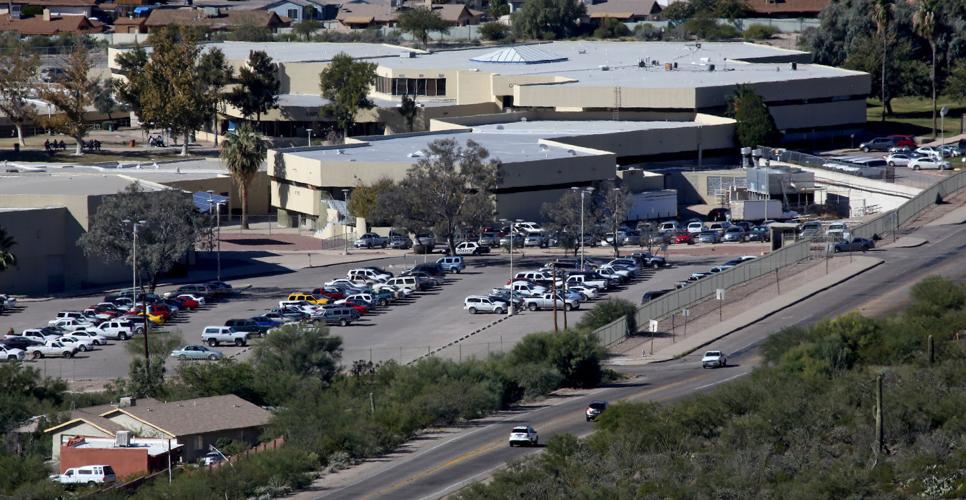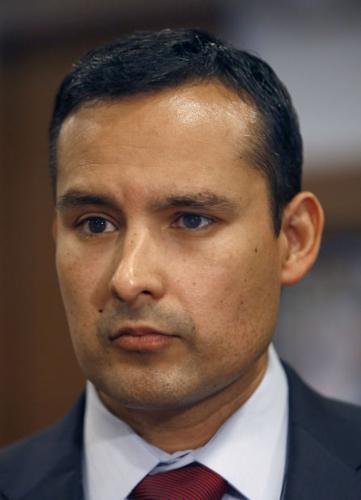Usually judges try to keep their commentary out of their rulings.
After all these years and the endless entanglements of the TUSD desegregation case, David Bury is having a hard time holding back.
A U.S. district judge, Bury has overseen the case for more than a decade and in 2009 ruled that the court’s oversight of TUSD could end. Probably to his great relief, the desegregation case was over — for 19 months at least, till the 9th Circuit reversed Bury’s decision and gave the case back to him.
Now it’s six years later and the conflict between plaintiffs and the defendant, TUSD, seems to be getting hotter, not cooling down and nearing resolution. The latest outbreak of bickering occurred over the question of how to deal with the magnet schools that are not becoming integrated.
On Nov. 19, Bury accepted a report from the outside expert in the case, Special Master Willis Hawley, and ordered that five schools that have not become integrated remain magnets for now but start planning to phase out their programs.
In that order, he gently took TUSD leaders to task for misleading parents at magnet schools that might lose their programs.
“Because of the highly visible nature of the magnet schools, the Court has received large numbers of letters from concerned citizens,” Bury wrote. “These letters reflect a great amount of misunderstanding by the public regarding the changes underway to TUSD’s magnet program.”
I felt vindicated when he wrote this, because it backed up my earlier contention that TUSD was misleading parents, something board president Adelita Grijalva challenged on our editorial page. Bury even asked that Hawley make sure Grijalva receives all the court’s orders — a subtle suggestion that she didn’t know what she was talking about.
The Tucson Unified School District took part in the discussions that led to that Nov. 19 order. But then, on Dec. 3, the district filed a motion for Bury to reconsider the order he had just made and that they had helped formulate.
That appears to have been a little too rich for Bury. In a series of clauses, phrases and sentences, he made it clear he’s had enough of the district’s recent litigiousness.
“The Court was not confused when it ...” is the phrase he used to start one paragraph rejecting the district’s contentions. “There is no need to clarify the Court’s order ...” he says within that paragraph.
“The District ignores the fact ...” begins Bury’s next paragraph.
“Finally, further briefing is not required. The issues were fully briefed and presented to the Court,” Bury wrote as he began to sum up the order.
And he wasn’t done yet.
“The Court denies the Motion for Reconsideration. The Court did not patently misunderstand the parties nor make an error of apprehension,” he wrote, before concluding, “The District should not ask the Court to rethink what it has already thought through — rightly or wrongly.”
Well! How about telling us what you really think, Judge Bury?
Now, TUSD is of course entitled to drag out this case in court, as it’s been doing for more than three decades. The district’s chief counsel, Julie Tolleson, told me that sometimes the district may file an objection just to make a record of it. That way, officials can preserve their right to fight that particular issue on appeal.
But she acknowledged the case has taken a testy turn.
“For whatever reason, conflict is presumed,” she said. “Difference of opinion has become the default setting in the case.”
While TUSD has the right to keep up the fight, the parents, voters and taxpayers of TUSD are entitled to wonder just how much we’re paying for it. Increasing amounts, it turns out.
In fiscal year 2013-14, TUSD paid its own lawyers in the case $255,317, district officials told me when I asked for their legal fees through a records request. Last fiscal year, the one ending June 30, TUSD paid its own counsel $594,037.
But that only begins to tell the story. The district, as the defendant in the case, must also pay the bills of those who are suing it. In 2013-14, it paid the lawyers for African-American plaintiffs $301,510. That number went up last fiscal year to $821,250.
In 2013-14, the district paid the lawyers for the Latino plaintiffs nothing, but last fiscal year the bill went up to $813,251.
Add up those three bills for last fiscal year and you get more than $3 million — a troubling escalation of costs in the H.T. Sanchez era.
Taking into account those bills and Bury’s evident exasperation with the district, it seems like this would be a good time for TUSD to stop the costly fighting. The judge is telling district officials that it’s getting them nowhere.







